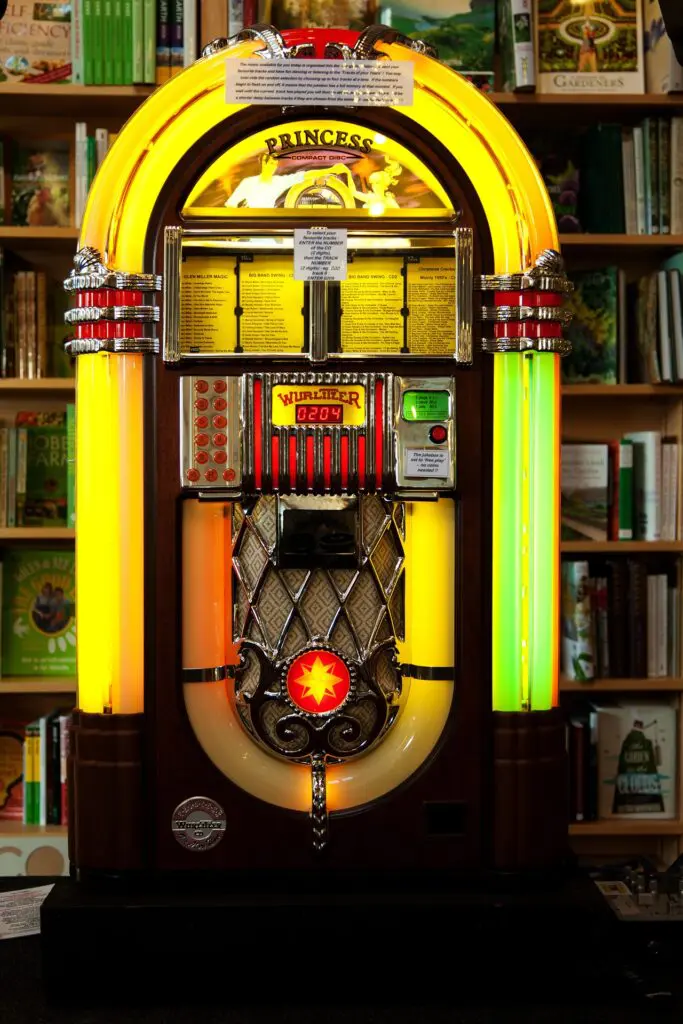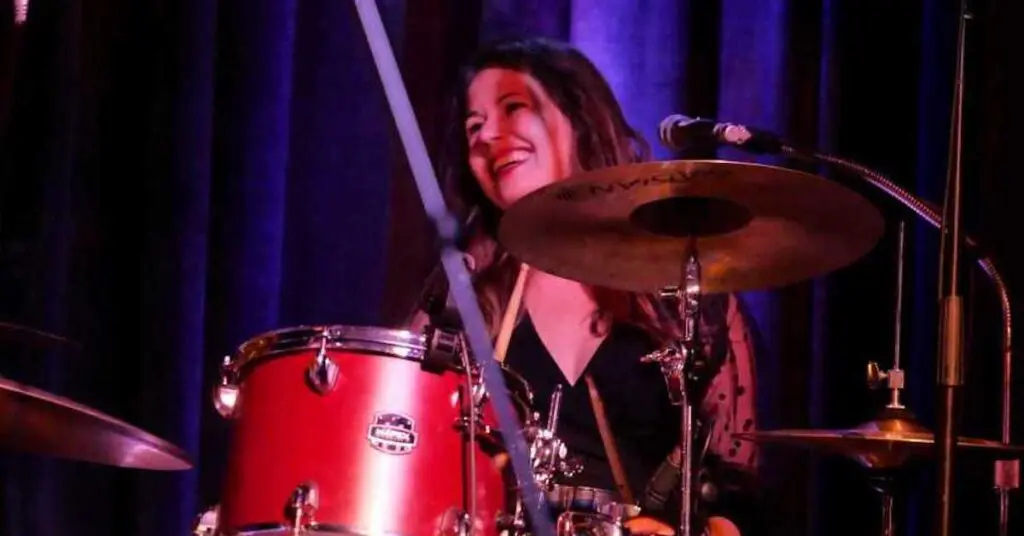Serpent and the Sun, Chptr. 6 – Xperience Fiction
By Staff on December 24, 2024
Serpent and the Sun, Chptr. 6 – Xperience Fiction – by Liam Sweeny.
Jameson paced his office on the fourth floor, his desk overburdened with dusty-jacketed books. Law books. Or what used to be law books. Now they were relics, artifacts of a time when behavior was regulated by something other than corporate whim. However, within the stack of tomes lay the day’s lesson. Adam was seated within his screen, in a chair similar to Jameson’s own. He had the same plain smile he always had.
“Corporations,” Jameson said, “In some form or another, are as old as man himself.” He rifled through the books, “From Mesopotamia, through the Roman Empire, the Roman Catholic Church, all the way up to the UEC, corporations have existed, and have evolved.”
Jameson walked over to a white-board. He’d found a stash of erasable markers still with ink, and he pulled one out.
“Corporation, as a word, comes from the Latin corpus, or body. And in an abstract sense, that’s what corporations are; bodies.”
“Confusion.”
“Of course,” Jameson replied, “I’ll explain. Incorporation is a process by which one or more, usually many, people create a separate entity that is known as a legal, or juristic person.”
“They have a child?” asked Adam.
Jameson laughed. “Oh, no,” he said, “they don’t create another human being. They create something that the law can recognize as a person. Call it a fictitious person.”
Adam scratched his chin. Jameson liked to do that. Adam was starting to copy his mannerisms.
“Why would they want to create a fictional person?” He asked. “Were they telling stories?”
“No, nothing like that,” Jameson replied. “There were a number of reasons. For starters, there were things that a person could do but a group could not, like purchase property or sign contracts. Plus, a corporation could retain its, well, personhood, no matter who was a part of the group. So if, for example, the original members of the group grow old and die, the corporation will still exist, but with new people; presumably the ones who were replacements.”
“So are corporations immortal like Blake and Mike?”
“In a way, yes…” Jameson said, “But corporations are very different from Blake and Mike. You know what is meant by personality, correct?”
Adam nodded. “Myers Briggs has sixteen types of,”
“Okay, good enough.” Jameson cut him off. “The point here is that the corporation, as a juristic person, has what they call a “legal personality.” They can sue, be sued, and commit crimes, just as a person can. Because they are controlled by people.”
“But the UEC,”
“We’ll get to them soon.” Jameson said. “As I said before, corporations have existed throughout the ages in one form or another. And one of the earliest models of the modern corporation was the Catholic Church, which, as you’ll note, lasted until the UEC outlawed religion. Hundreds of popes, yet the Church as an entity never disappeared, though the people came and went.”
Adam nodded. His smile had widened a bit. How he loved to learn, Jameson thought.
“Skipping ahead,” Jameson said, “Corporations were people, by law, citizens of the nations in which they were incorporated. But, and a big but here, they had far more capabilities than a real person. The real people, sometimes called workers, sometimes residents living on land the corporations polluted, sometimes they were litigants harmed by the products of the corporations. Either way, they, individually, did not have equal access to resources that the corporations had. And so governments had to enact laws to ‘balance the scales’.”
“Governments,” Adam said, “abolished…”
“No,” Jameson replied, “replaced. That’s the technical term.”
“Difference?”
“Not a whole lot,” Jameson glanced out the window, “The fat-cats got to keep their jobs; that’s all…”
“We’re getting ahead of ourselves, Adam.”
“Sorry.” Adam grinned sheepishly. It was hard to remember he was digital, aside from the housing.
“Towards the end of the twentieth century,” Jameson continued, “the laws that ‘balanced the scales’ were eroded, eventually eliminated.”
“Why?” Asked Adam, “Couldn’t the real people stop that?”
“Again, Adam, it’s an issue of time.” Jameson drew a line. He marked the left end with a point.
“This is 325 A.D., or thereabouts,” Jameson said, “This, we’ll say, is the beginning of the Catholic Church.”
Adam nodded. Jameson marked a point at the opposite end of the line.
“This is Apep.” He said. “So let’s call this a corporate life-span.”
“OK.” Adam said. Jameson drew a tiny dash beneath the line.
“That dash, we’ll call that a human life-span.” He said. “One of the powers of the corporation is the ability to traverse human generations, and life-spans.”
“The corporation will always act to free itself from restriction,” Jameson continued, “It doesn’t matter which humans compose the governing board.”
Adam was quiet.
“Do you understand what I’ve told you so far?” asked Jameson.
“I think so,” Adam replied. His background was cloudy. Jameson took that as a clue that Adam was confused. He already knew the source of confusion.
“The United Earth Corporation, UEC as we know it, is a corporation, Adam,” He said, “but it’s more than just a classical corporation. Some would say it’s the evolution of one.”
“Because of PEALE?” Adam asked.
“Yes, somewhat,” Jameson replied, “PEALE is AI; it gives the juristic person a brain that can exist in perpetual succession, that’s what the, uh… immortality is called.”
Adam was silent. Jameson was too.
“Why somewhat?” Adam asked Jameson.
Jameson stared out the window, afraid to say what was on his mind. He looked over at the desk, at the small digital device holding his student. Adam smiled, but the background was still cloudy. Jameson looked out the window again. Fuck it.
“The full evolution of the corporation would require something else,” He said, “You.”
***
“Get in there!” Blake shouted to Donnie and Ralph. He didn’t have to see the wheel-like transports skipping through the clouds to know they were Guardsman. He’d been one before. He looked back to see the silhouettes of Donnie and Ralph running down the tunnel. He felt bad about scaring Donnie, but his wife’s call was a diversion. A warning call from her would’ve been jammed. Most likely she was dead, her voice cloned.
Blake walked to the outer-edge of the tunnel. Carefully, he placed his palm to the pavement. He cleared his head, and, as he was trained to do, he brought a small but powerful tremor out of the earth. The upper rock-face collapsed around him, sealing the tunnel within seconds. It wouldn’t stop the Guardsmen, but they weren’t just there for the depot.
Blake was in the air without realizing it. In training, flight was so practiced it became automatic, and Blake no more than thought it than he was twenty yards above the upper plaza. He needed to take the fight elsewhere. Blake became the diversion, letting the compressed gusts of wind he generated take him in front of the old state capital building across the road. The clouds, still distant, were locked on him. Blake smiled. He never tired of a showdown.
As the thundercloud approached, perfect in form, Blake saw the wheel-like vehicles up close. They called them unirotors, though their construction involved no such thing. They ran off of UFM fields like everything else the UEC made. Blake could see three of them. There were two Guardsmen in each; one to steer, one to direct the juice.
Blake braced for them by connecting with the atmosphere. He took a deep breath, drawing awareness from the ground, through the molecules of the air surrounding him, and he felt the heat in his head as his consciousness connected to the ionosphere.
“Blake Chaplin,” a voice thundered, “You are under arrest. Release your connection, and return to the ground.”
Cyrus Swift. Blake knew the voice. No friend of his even during his Guard time, Blake knew Cyrus chose this interdiction. Their history was a vendetta.
“Blow it out your ass, Cy’!”
Blake centered himself, feeling the plasma of the ionosphere sucked down to surround him. Cyrus tried to cut him off, sending a long streak of lightning in Blake’s direction. He could have dodged it, but instead he absorbed it, twirling the electric force around the gravity of his suspended body. He redirected the lightning back to the interdiction force, zapping the UFM generator in one of the accompanying unirotors. It started to wobble before the driver regained control. By then Blake could see their faces, they were so close. Cyrus had grown a goatee; he’d been out a while. Facial hair was prohibited for a Guardsman in Denali, and they could only grow facial hair in extended outings. Blake didn’t recognize the other guys. Cyrus hopped from the unirotor, shrouded in dark clouds. He hovered in the air to face Blake.
“How many times have we gone against each other, Blake?”
“I don’t know,” Blake replied, “I only count losses, and you ain’t beat me yet.”
Cyrus laughed. “Soon enough, friend…”
They hovered in the air, staring each other down. Suddenly a funnel of torrential wind enveloped them, lightning, hail and wind becoming weapons used in silent battle.
“When are you gonna give up?” Cyrus said, “Do I have to kill you? Is that what it’ll take?”
“If they thought you could kill me, friend,” Blake said, “They wouldn’t have sent them,” he pointed to the unirotors, “with you.”
Cyrus sneered. Then he laughed. Blake didn’t know what to make of it. For as long as he’d known Cyrus, Blake knew him to be two things: crazy and violent.
Cyrus turned around to face his back-up on the unirotors. Blake could see by the looks on their faces that they also knew how crazy Cyrus was. But they didn’t have a second to think before Cyrus directed a burst of plasma from the ionosphere into the center of each unirotor. They dropped like lead, and Blake could see the shine of skeletons toppling out of them, shattering as they crashed to the ground. Blake looked down in shock, reminded of the difference between immortality and functional immortality.
“Cy’; have you lost the few marbles you had left!?!”
Cyrus laughed again. Blake looked down to see the wreckage strewn about the capital lawn, smoking and barely recognizable.
“Funny thing about the ionosphere,” he said, “Denali ain’t got a clue what’s actually going on here.” Blake could see him starting to glow. He could also feel his connection to the ionosphere being challenged.
“If you hadn’t a’ killed my back-up,” said Cyrus, pointing to the ground, “I could’ve just arrested you.” His glow intensified. He smiled. “You’re wanted dead or alive.”
Blake stared him dead in the eye. Cyrus had indeed lost his mind.
“Now I have to go with the first option.” He said.
***
“Arriving from?” asked the guard.
“Pacific Sanctuary,” Gerhardt replied, “Second Tier.”
The guard looked at him curiously. He’d probably never seen a Sanctuary member he wasn’t taking orders from. Gerhardt extended his wrist, where Elle’s father had a chip put in. He hated it; not being tracked, the Sanctuary tracked everyone, but at the fact that her father had Gerhardt chipped before he left. He was persuaded to do so, being told that he would be hunted as a rebel unless he lived in a protected area. Gerhardt planned on taking it out somehow. He just needed to get acclimated to his new world.
Gerhardt made it through the line. They were in a large warehouse building on the site of an old airport, the Anchorage Receiving Station. It was filled with people who’d arrived on boats and sea skiffs. It made him think of Ellis Island, an immigration depot that once existed in New York. There was a tele-screen on the back wall, displaying a weather map of the United States. It was quiet, except for a large disturbance in the northeast. A hurricane, it looked like, right over the remains of New York. Thank God no one lives there anymore, Gerhardt thought.
He was going through the line quicker than the others. Most were subject to blood tests, physical examinations and vaccines. Gerhardt merely had to have his wrist scanned, getting through the line within an hour. As he looked back into the warehouse, he noticed one family that had been before him in line still trying to get through the first screening station.
Elle’s father had been most accommodating. Gerhardt was given an A3 pod-cruiser, capable of land, sea and air travel. He was outfitted with survival equipment and an accommodating credit account wired into his chip. That was another reason he’d have to keep it in for a while. As he got out of the receiving station, he saw a short, stocky man holding a sign with his name on it.
“I’m Gerhardt.” He told the man. The man then grabbed his bags quickly enough to startle him, tossing them in the back of a float parked in front. He then rushed Gerhardt into the passenger side.
“What’s the hurry?” asked Gerhardt. The man’s eyes darted back and forth between the building and the sky above. He grabbed the controller, and the float rose to meet the other traffic.
“Three times this week that place has been bombed.” The man said. “I only get paid if you get to the lodge alive.”
“The lodge?”
“That’s where I was hired to take you.”
“What is it?”
The man chuckled.“It’s like a hotel. You know what that is, right?” He said.
“I’ve read about them.” Gerhardt looked over the side of the float. It was a hundred yards down, and with the passenger window cracked, the breeze was cold against his face. He had much to get used to.
“You Sanctuary people,” the man said, “I’m surprised so many of you show up here and survive.”
“I’m not the only one you’ve seen?”
“Not even close,” the man replied, taking the float sharply to the right, “I get orders to pick up Sanctuary people at least once a week.”
“From Pacific?”
“Pacific, Denali; hell, even Everest on occasion,” he smiled, “Though the Everest people know their heads from their asses…”
“Thanks,” Gerhardt could’ve sworn he was feeling airsick.
“Nothin’ personal,” the man said, “I’m sure you’ll manage.”
They continued on in silence. Gerhardt knew that Anchorage was a protected area. So long as Elle’s father kept his word, Gerhardt would have time to plan his next move. He certainly wouldn’t be spending the rest of his days in Anchorage under the UEC’s thumb.
“So what do the other Sanctuary people come here for?”
The man spit over the edge of the float. “To be honest with ya’,” he said, “I don’t ask. It’s better that way.”
“Aren’t you ever curious?” asked Gerhardt.
“No.” The man said. “You’re a fare to me. And fifteen-or-so of you a week put meals on my table. That’s all I need to know.”
The float hovered above a three-story building. Gerhardt could see neon near the door, but couldn’t make out what it said.
“That’s the lodge,” the man said, “and the neon sign is for a bar called Apep,”
“Apep…”
“…like the asteroid, yes.” The man said. “It’s a rough bar; I’d avoid it unless ya’ like ta’ scrap.”
“I can handle myself.”
“I’m just givin’ ya’ friendly advice.”
“Thanks, but I’ll be fine.”
The float approached the ground. The lodge was a brick structure, very old and near collapse by the look of it. The windows all appeared wrapped in plastic. Odd. Gerhardt thought. Plastic had long been banned from production. The stuff must’ve been decades old. There was a door to the lodge in the center. The entrance to Apep was to the far right. He could see three men standing outside, smoking cigarettes and looking over at him.
“Well, there ya’ are,” the man said. Gerhardt turned to see his bags out of the float already. “Enjoy your stay in Anchorage.”
“What makes you think it’s just a stay?”
The man laughed. He hopped in the float as took her up and away without answering.
***
They left Bozeman shortly after dawn. Sarah awoke to the sound of Daniel’s laughter. She looked up to see him playing with Michael, tossing around a rubber ball they must have found in one of the rooms. She never heard Daniel laugh like that with any of her boyfriends. Daniel was always the dividing line, his disapproval the death knell of her relationships. She was on the verge of breaking up with Joey when Michael burst into her life.
Sarah looked down the street to see the sun peeking through the empty buildings. Michael had, somehow, brought her coffee, a rare commodity even in East Yellowstone. They’d talked till the wee hours the night before, and she could feel the caffeine clear the numbness from her mind. Michael told her they weren’t safe as long as they stayed in one place.
They left in a long skiff with a covered back-compartment. Sarah asked what was in it, but Michael replied that it would be best that she not know. She was too tired to debate the issue. The skiff was in a church. She asked and Michael did give her an answer about that.
“PEALE can’t see into churches,” he said, “design flaw. Works to our benefit.”
“PEALE?”
“That’s the thing that’s been hunting us.”
“I thought we were being hunted by the UEC.” Sarah said.
“PEALE is the, we’ll say the brain of the UEC.” Michael replied. “The people running the Sanctuaries say they want something done in the world, they give the order to PEALE. Then PEALE figures out how and does it.”
“So why can’t it see inside a church?” asked Sarah.
“It can’t understand the concept of God,” Michael said, “So it skips over what few churches haven’t been destroyed.”
“Is that why the UEC banned religion?”
“Yup’,” Michael pressed a button in the skiff, and a map screen came up.
“Damn…” Sarah watched as Michael flicked his finger through the map, causing different screen layers to come up. Some looked like infrared, some topographical; it looked three dimensional, and Michael was engrossed by it.
“We’ll be going off-road soon,” he said, “You’ll both have to harness up.”
Michael pointed to a child harness in the back seat. “Daniel,” he said, “You’ll have to hop into that soon, buddy, OK?”
“Okay, Mike!” Daniel replied enthusiastically, “Are we gonna’ go fast?”
“Oh yeah, bud,” he said, “real fast. And high, too.”
“Sweet!” Daniel hopped into the back seat, scaring Sarah half to death. The skiff had a top, but it was down. All she could picture was Daniel falling to his death. They were already at tree-top level.
“Daniel, be careful!” she shouted.
“C’mon, ma’,”
“He’ll be fine,” said Michael, “I’ve not lost a passenger yet.” Daniel chuckled.
“I’m glad y’all think this is funny…” Sarah folded her arms, sulking as they roughly followed the old Interstate 90. Michael returned to the map hologram in the corner of the windshield.
“So where are we going?” she asked.
“I told you,” he replied, “Seattle.”
“I know, Seattle, but where in Seattle?”
“It’s called Union Square.” Michael said. “From there we’ll be splitting up.”
“What!?!” Sarah was shocked. “You’re just going to leave us there?”
“No.”
“But you just said,”
“…we’ll be splitting up. That’s what I said. I’ll be going where I have to go, and you’ll be going where you have to go.”
“Which is…”
“Something you’ll learn about when we get to Seattle.” Michael smiled.
“I hate you, Michael,” she said, “I really do.”
“I know.”
“Don’t seem to care much, do you?”
“No.”
Sarah sighed. Michael took the skiff up even higher, accelerating as they went off the overgrown Interstate. In seconds she heard the pop of the sound barrier, and the scenery became a blur.
“Sarah,” Michael said, “I don’t mean to keep you in the dark. If I felt that telling you everything wouldn’t put you and your son in danger, I’d do so.”
Sarah was silent. “Sarah, you have to understand,”
“I’d love to, Michael!” She exclaimed, “I’d just love to understand what you won’t tell me, but there’s a bit of a problem with that!”
Michael slammed the skiff into neutral. Sarah, Daniel and he lurched forward at the deceleration. Sarah reached back to brace Daniel, but Michael already had his hand out. The skiff stopped, hovering in mid-air.
“Sarah, listen to me and listen good,” Mike said, “The UEC has been hunting me for years. In fact, I’ve spent seven years as Number One on their Top Ten Targets List.”
“So?” asked Sarah, “Why are you telling me this?”
“A week ago, I was dropped to Number Three,” He said, “Beneath you and Daniel.”
***
“Don’t move.”
Kenny couldn’t see the man’s face, just the barrel of a mechanical rifle poking through the brush just outside the perimeter. He wasn’t alone; the rough forest ahead bristled with the clicking sounds of metal. Kenny looked for Bubba, expecting him to have run away. But Bubba was by his side, a low growl in his throat.
“I don’t mean anyone any harm now,” said Kenny. He reached into his pocket, looping his Directed Energy weapon around his thumb.
“Take your hand out of your pocket,” the voice said, “and toss whatever you got in there on the ground.”
Fuck. Kenny tossed his weapon on the ground. It slid away from him on the ice.
“That’s DE,” another voice said, “He’s one of them!”
“Kill him, Carver,” yet another voice said, “Kill him now!”
More clicking. Bubba’s growl got louder. Kenny felt the sweat freezing on his forehead.
“Kill the dog, too!” Another voice shouted. Oddly enough, this prompted Kenny to speak up.
“Leave Bubba alone,” Kenny said, “he’s not even my dog!”
“Bubba?” asked a voice further down the brush, “Did he say Bubba?”
“Shut up, Joe,”
“That’s Sam’s dog…”
“Shut the fuck up, Joe!” The voice returned its attention to Kenny.
“Get on the ground,” it said, “slowly…” The sound of more clicking followed. Kenny took the hint, slowly laid down, locking his fingers behind his head. He heard movement, but he didn’t see anything. Suddenly he felt his hood removed, and a cold sensation as something pierced his neck. He didn’t have but a second to guess what it was before he lost consciousness.
Kenny awoke to the burn of rope around his wrists. His head hurt, as did his shoulders. His legs were tied together at the ankles, wound around the steel chair he was sitting on. They had taken his coat, and he was freezing. He couldn’t see much; just dark shadows peeking from wooden crates and burlap sacks. A small incandescent light shone above, its brightness in sync to the sound of a generator humming outside.
There were a few men in the room. Kenny couldn’t see them all, but he could hear them breathing, coughing, shifting in their seats impatiently. Kenny knew most of them wanted him dead. He never should’ve brought the weapon. Only Security Forces carried DE; it made him an instant mark. He imagined his being alive a sign that they expected information from him; nothing more.
A man stepped forward into the light. He was a large man, unshaven, his thick beard rough and matted. He had a hard face, pock-marked from what was probably years of the Arctic wind’s erosion. He was wearing a ragged flannel shirt, sewn up in various places. He had a pool stick in his hand.
“So,” he said, “Why are you here?”
Kenny squinted. He was still groggy from whatever they’d drugged him with.
“I had to leave,” Kenny replied. He didn’t know who the men were. For all he knew, they could have been UEC spies. The man swung the pool stick across Kenny’s face, breaking it in two. He grabbed hold of the thicker end.
“Not good enough,” the man said, “Now I’m gonna’ ask ya’ again, why are you here?” As the man tightened his grip on the pool stick, Kenny noticed a scar on his wrist. Another fugitive.
“I was targeted by the UEC,” Kenny said, “I used to be a member of the Security Force, but they-,”
“I knew it!” one of the voices said, “Kill that son-of-a-bitch!” The others in the room all grunted in agreement, but the man questioning him held them off.
“What was your kill number?” The man asked.
“I don’t know,” Kenny said, “I never-,”
“Don’t bullshit me, son,” the man said, “Everyone in the Security Force knows their kill number. So what was yours?”
Kenny shuddered when he thought about it. “T-two hundred eighty-t-three…” He said.
The room erupted in jeers and cat-calls.
“Boy, you certainly kept yourself busy,” the man said, “But I want you to know that, for each and every one of those stat-points, one of our fathers, mothers, sisters, uncles, aunts… children, had to die.” He followed that statement with another blow across Kenny’s face. He could feel his cheekbone fracture.
“Now I’m wonderin’ whether you’re crazy or stupid for comin’ out here.” He said. “I can’t say stupid, ‘cause likely you’d have been fried when ya’ passed the city limits.”
“Rog’, just kill that crazy fuck, will ya?” a gruff voice said from the shadows. Kenny laughed, and the man’s eyes widened in disbelief.
“Somethin’ strike you as funny?” the man, Rog’, asked.
“Roger Borland…”
A look of shock blanketed the man’s face.
“How did you know my name?” He asked.
“We let you go…” Kenny said, blood trickling from the edge of his lip.
“What do you mean, you let me go?”
Kenny swung his head low, still reeling from the sting of the pool stick. Borland grabbed his shirt collars, bringing him up as far as his restraints would allow.
“I’m gonna’ ask you again,” he whispered, his face inches from Kenny’s, “what do you mean, let me go?”
“We were watching you when you escaped.” Kenny said. “We marked you for the laser. But you survived it; it never hit you.” Kenny spat blood and saliva. “And when we saw you running away, we let you go.”
The small room became silent, save for the howl of the wind outside. Roger set Kenny back down. He paced the area made visible by the overhead lamp.
“Why’d you let me go?” Roger asked. Kenny looked up at him, squinting as sweat streamed from his forehead into his eye.
“We were proud of you,” Kenny replied, “That, and we couldn’t figure out how you did it… until yesterday.”
“So I owe you my life,” Roger said, “is that it?”
“No, not at all,” Kenny said, twisting his arm about to show Roger the scar on his wrist.
“I owe you mine.” He said.





 RadioRadioX
RadioRadioX